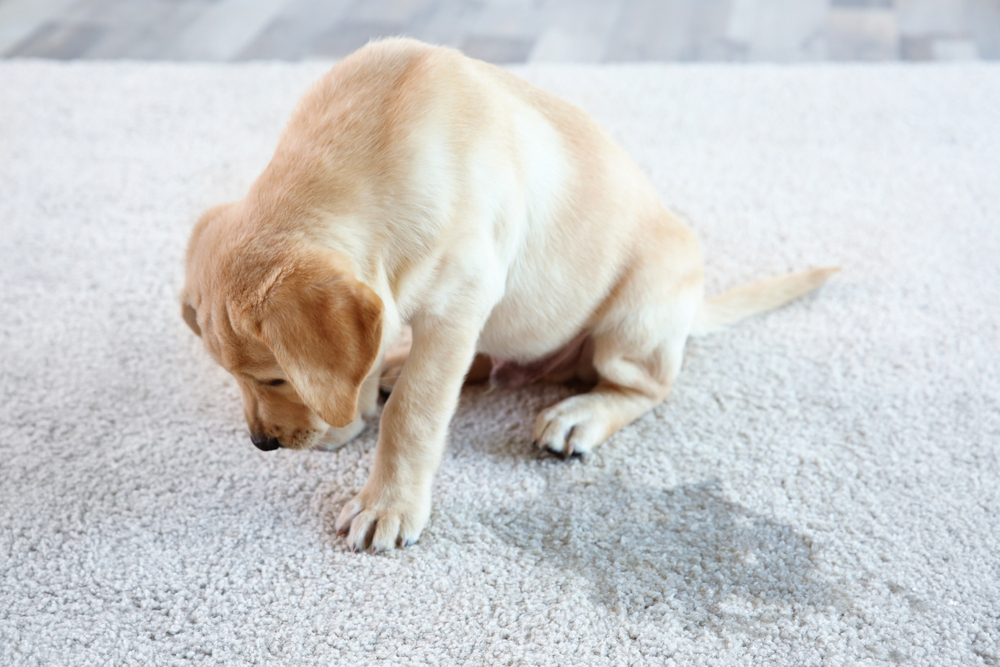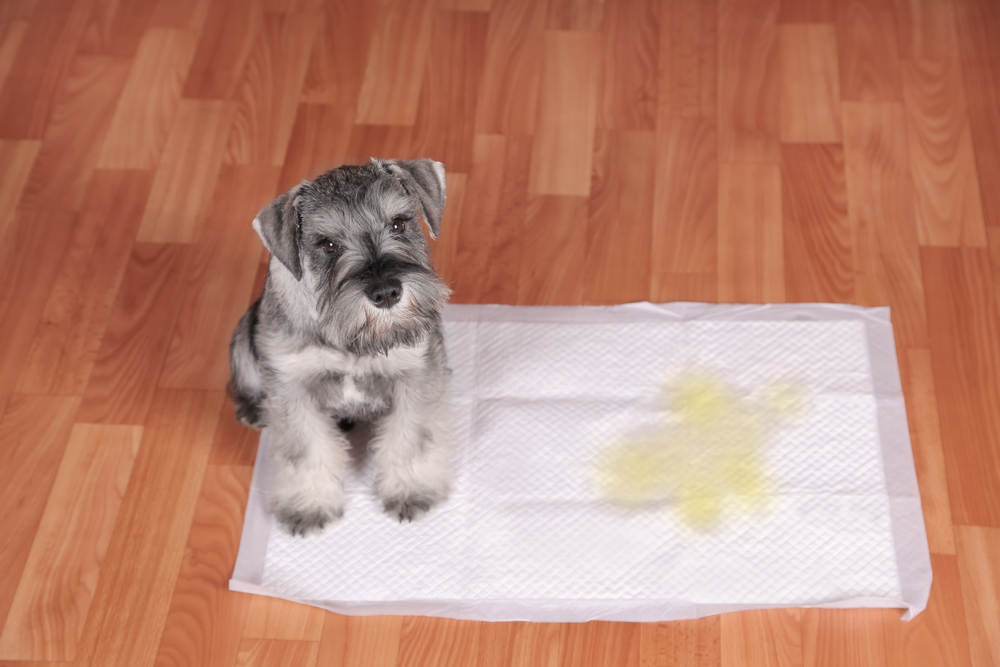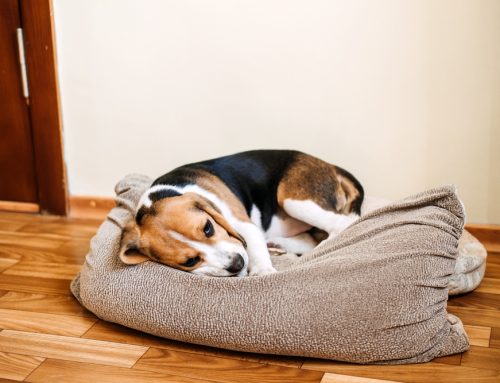When you bring home a new pet, a transition period is required, especially for puppies, who often need intensive training. How you train your pup influences your bond and teaches them how to interact with the world. Housetraining is a particularly important step in the training process, because your dog has more freedom and can participate in indoor family life. The Willow Wood Animal Hospital team knows potty training can be a frustrating process and wants to ensure pet owners aren’t working from outdated information or ideas. Here are some updated, practical, proven tips for successful housetraining.
#1: Know your puppy’s limits
Realistic expectations are important to ensure everyone is on the same page. Puppies can only hold their bladders for a few hours at a time—around one hour for every month in age, plus one. This means that if you bring a young puppy home, you’ll be taking trips outside every hour or two at first, and then increasing this time frame as the little one grows and develops better voluntary control. Try to time the puppy’s arrival with a work break or when the kids are home from school, or enlist the help of neighbors, friends, or dog-walking services to fill in the gaps.
#2: Keep your puppy’s schedule consistent
Pretty much any event in a puppy’s daily life, such as eating, drinking, or playing, can trigger their need to use the bathroom, but with a consistent daily schedule, you will learn to predict when your puppy will need to go, anticipate the event, and prevent accidents. The more often you can get your puppy outside before they have an accident, the quicker they’ll understand that they should eliminate outside. Try to keep your daily schedule consistent, so your puppy develops a sense of routine.
#3: Use rewards instead of punishment
Many “old-school” dog training methods and theories have proved to cause more harm than good in the long term. Popular thinking on dominance was derived from captive wolves and doesn’t apply to domestic dogs. The best way to train dogs is through positive reward-based efforts and not through dominating your dog with force and punishment, which only creates anxiety and fear of humans. The idea is to reward what you want your dog to do, and gently redirect or ignore undesired behavior.
With housetraining, reward timing is particularly important. Plan to bring high-value treats with you every time you go outside, and reward your pet immediately after they use the bathroom in the desired location. Don’t wait until you go back inside to reward your pet, because your dog will associate the treat with being outside and coming back, instead of the act of eliminating, which will significantly slow training progress.
#4: Closely supervise your puppy in the house
Between planned trips outside, you should closely supervise your puppy as they move around the house so you can pick up on cues, such as sniffing or circling, that they need to go outside. We recommend a combination of strategies, including keeping your dog on a leash by your side as they explore the home, confining them to a crate at night and when you leave the house, and using pens or other barriers to keep them in a smaller area when they aren’t directly supervised. When crate-training a puppy, provide special crate-only toys or treats so they learn to love their crate, and do not leave them inside for too long.
#5: Learn to handle accidents with grace

Accidents are inevitable during housetraining, and you should learn how to react in a way that helps your puppy learn but doesn’t scare them. If you catch them in the act, get their attention with verbal redirection and immediately take them outside to complete their elimination. Once done, reward them for going outside. If you find an accident after the fact, simply clean up and move on with your day. Showing your dog the accident and yelling and telling them “No” only confuses them, because they won’t remember or understand why you’re yelling and will learn that humans are scary and yell unpredictably, rather than realizing they must not go in the house. Give your pet the grace they deserve during housetraining.
Dogs are intelligent creatures, but their brains work differently from humans. Puppies will become fearful and anxious if you yell at and punish them, but a reward-based training system will help your puppy learn and grow without damaging the human-animal bond. For more information on housetraining, or to schedule your puppy or adult dog’s next routine veterinary visit, contact the Willow Wood Animal Hospital team.







Leave A Comment